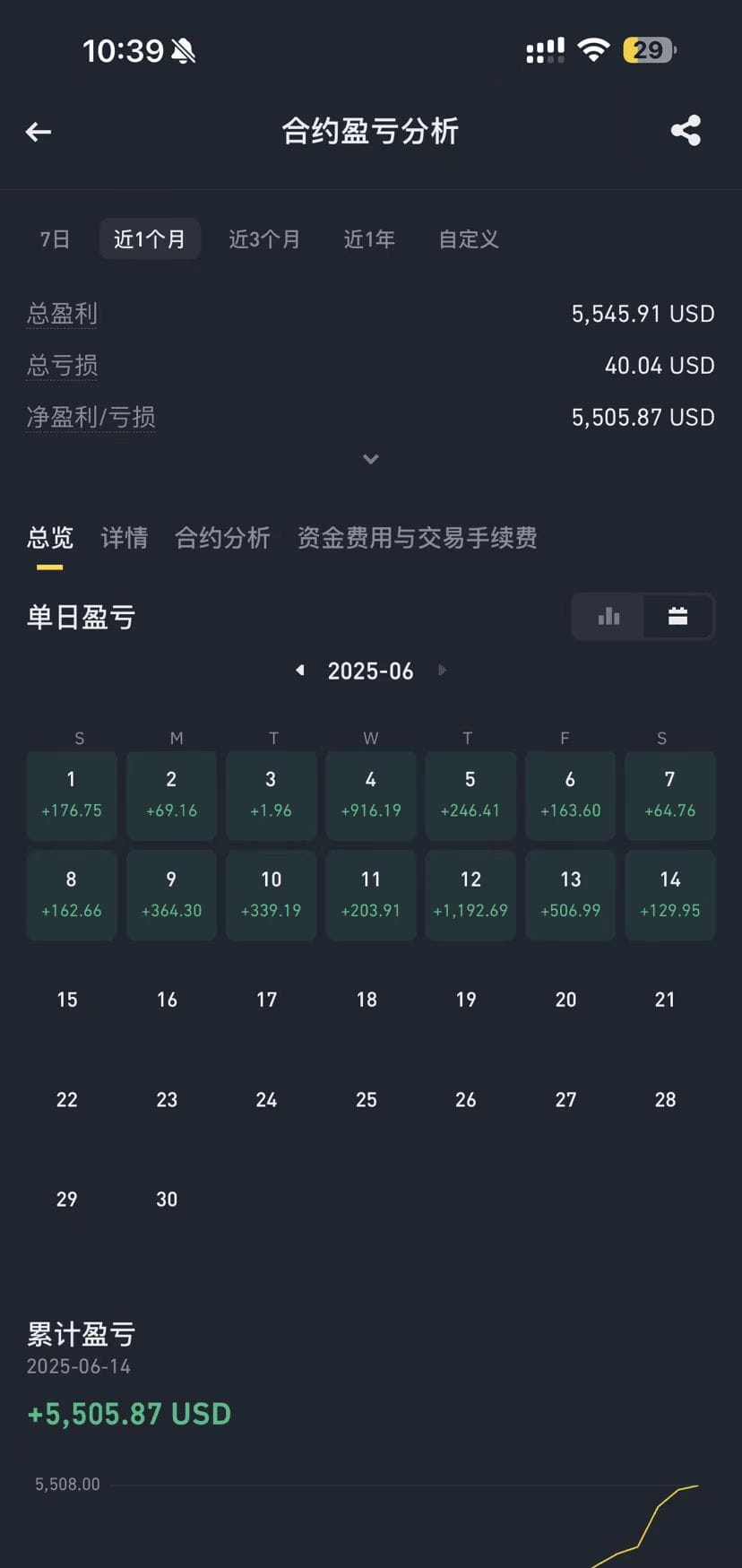1. Survival first. Regardless of the size of the account, this is the first principle.
2. Only trade short-term fluctuations. The biggest disadvantage of small capital accounts is their very weak ability to withstand drawdowns; even a slightly larger drawdown can lead to liquidation. Therefore, it's best to only engage in intraday short-term trades.
3. Regardless of profit or loss, limit the number of trades you make each day. It's best to not exceed 3 trades per trading day. If the first two trades have hit a stop loss, it's better not to continue trading to avoid being influenced by your mindset. Moreover, be sure to take profits in a timely manner; don't continue trading just because the three trades of the day have all been profitable.
4. Only trade one instrument at a time. For small capital accounts, don't think about diversifying investments; it's unrealistic. Since the account capital is already limited, if you try to trade multiple instruments simultaneously, it will only reduce your risk tolerance and could lead to larger losses.
5. Be adept at seizing big opportunities. Small accounts need to grow their capital; relying on earning a little profit every day takes a long time, as mentioned earlier regarding the compound interest model. Therefore, small accounts must grow quickly and be good at grasping opportunities, seizing a big opportunity every so often, and then patiently waiting for the next opportunity to arise. This can also be understood as winning with quality rather than quantity of trades.
6. Increase position size; be bold yet meticulous. I have mentioned many times before not to over-leverage. However, if you want to gain substantial profits from speculative trading with a small amount of capital, you need to be willing to take on larger positions. If you want your small capital account to grow quickly, you must increase your position size while seizing opportunities. At this point, don't fear larger positions, and don't equate large positions with liquidation. The core reason most people face liquidation is never due to being over-leveraged, but rather entering trades too easily, frequently hitting stop losses, or even not using stop losses at all.
